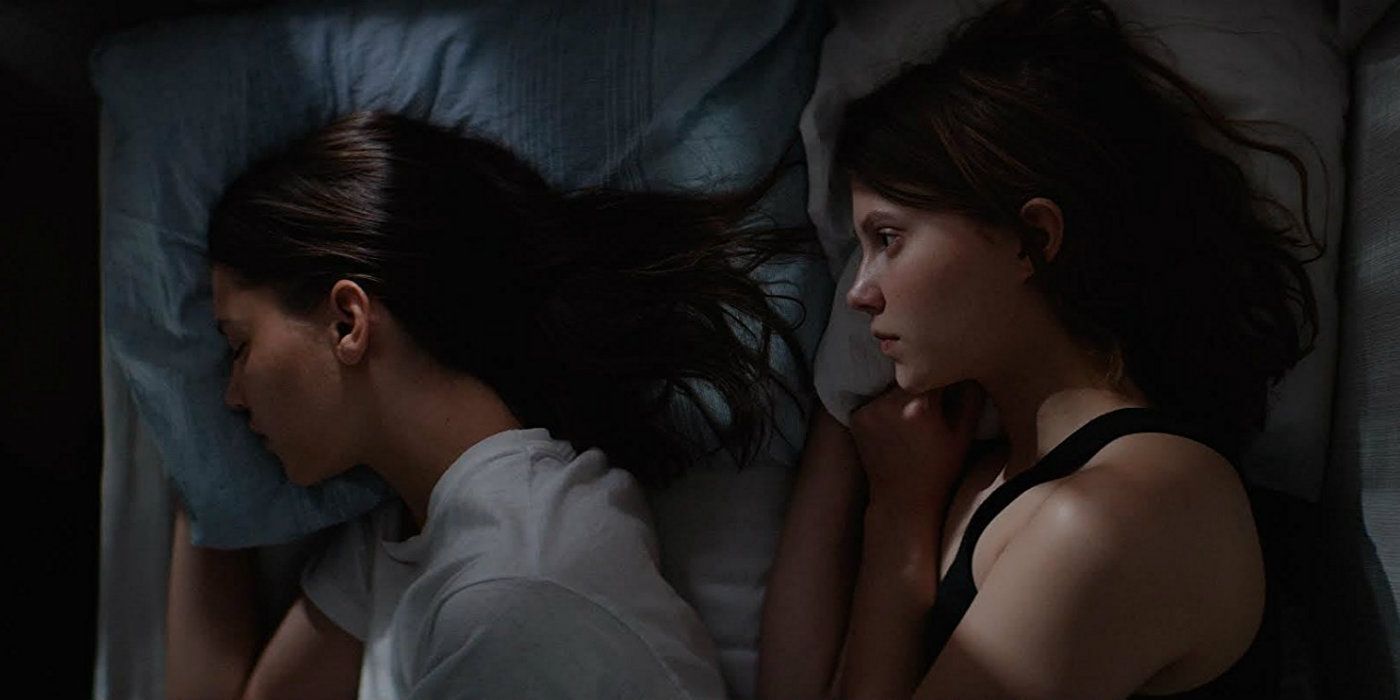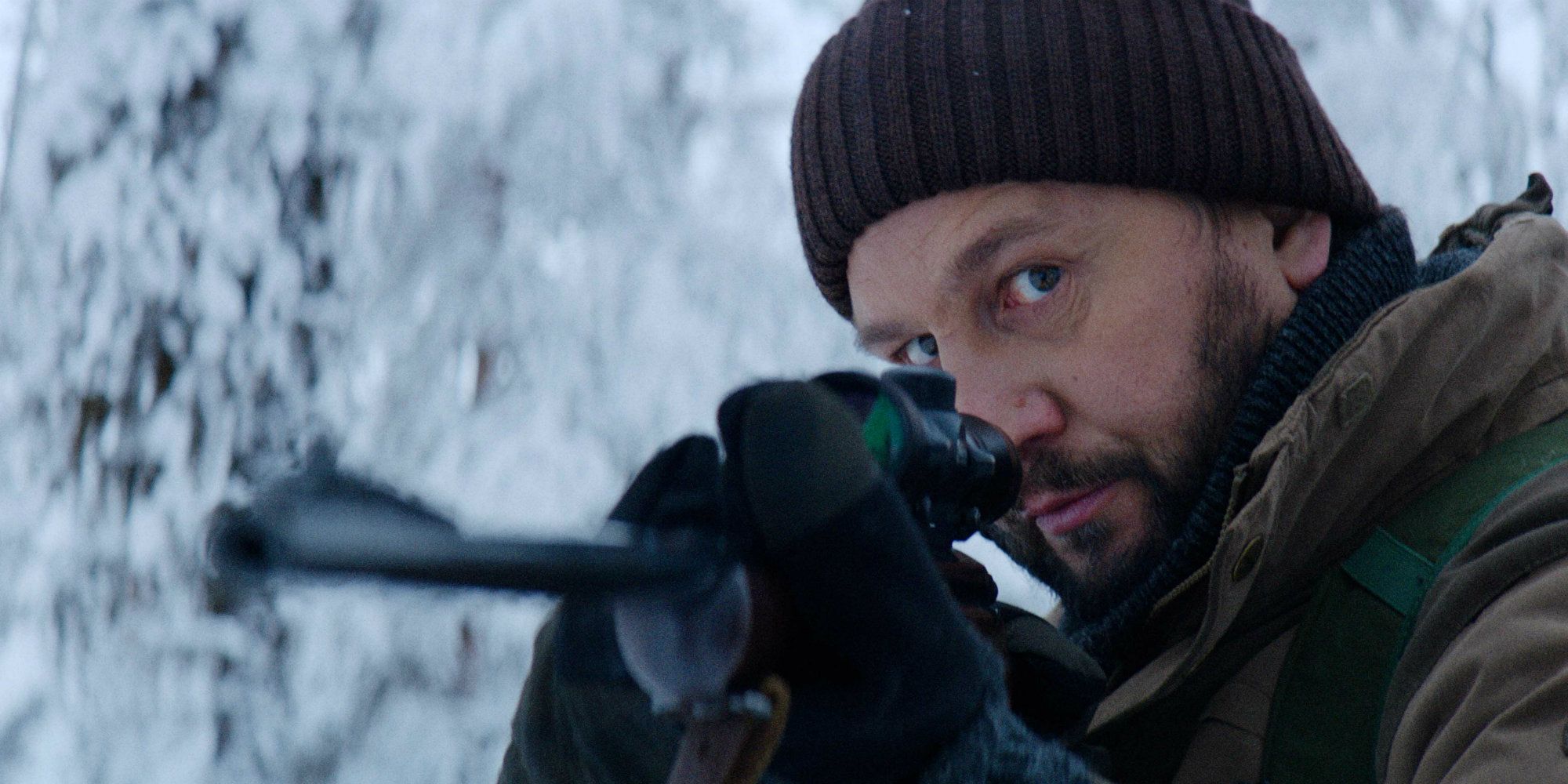Thelma makes for an effectively moody and evocative piece of Norwegian-flavored filmmaking, even as it brings more groundbreaking stories to mind.
The fourth feature-length project by Norwegian filmmaker Joachim Trier - following his explorations of youthful attraction (2006's Reprise), drug addiction (2011's Oslo, August 31st) and familial reconciliation (2015's Louder Than Bombs, Trier's English-language debut) - Thelma is a captivating coming of young adult age parable that draws on familiar genre conventions; those of the supernatural horror and super-power variety, to be exact. While Thelma is a bit too derivative and reserved to succeed as a mold-breaker, it does make for an engaging genre exercise in atmospheric storytelling - all while exploring traditional LGBTQI themes, in both a literal and symbolic sense. Thelma makes for an effectively moody and evocative piece of Norwegian-flavored filmmaking, even as it brings more groundbreaking stories to mind.
Thelma herself (Eili Harboe) is a young woman who is just beginning her studies at a university in Oslo, having previously been raised in the Norwegian countryside by her parents - Trond (Henrik Rafaelsen) and Unni (Ellen Dorrit Petersen), a pair of kindly but strict Christians whose helicopter parenting of their daughter often borders on being oppressive. Their worries seem excessive until one day, when Thelma suddenly suffers what appears to be a seizure while studying in her school's library. However, when examined by the university's physicians, Thelma shows no signs of epilepsy or similar neurological disorders.
Returning to her day to day activities thereafter (and deciding not to tell her parents about what happened), Thelma settles comfortably into her new life and even makes a friend in Anja (Kaya Wilkins) - a young woman whose interest in Thelma (and vice versa) starts off seemingly platonic in nature, but is quick to evolve into something else. As her relationship with Anja continues to develop and the pair grow closer and more intimate with one another, Thelma finds herself struggling with not only feelings of shame that stem from her upbringing, but fear that she possesses nebulous abilities - abilities that even her parents may have long kept secret from her.
The screenplay for Thelma, which Trier wrote with his frequent collaborator Eskil Vogt, very much brings to mind works like Stephen King's Carrie, among other fantasy and/or horror coming of age stories about young social outcasts who find themselves gifted with extraordinary (and dangerous) abilities. However, whereas something like Carrie takes a melodramatic approach to its exploration of the dangers of religious fundamentalism and emotional suppression/abuse, Thelma is far more subdued and restrained in its methods. Trier's film also weaves a touching story of first love into its narrative tapestry, as a counterpoint to the more ominous plot threads concerning its namesake's mysterious powers. The romance between Thelma and Anja is more compelling than the supernatural horror movie aspect, but the marriage of these elements is successful all the same.
Thanks to the photography by Trier and cinematographer Jakob Ihre (another one of the filmmaker's trusted collaborators), Thelma maintains a cold yet striking appearance and vérité sensibility throughout its runtime. This in turn allows the film to smoothly blend together different filmmaking styles, ranging from shots that emphasize a sense of realism and mise en scène, to dreamlike and subjectively-framed sequences that showcase the full extent of Thelma's supernatural abilities. At the same time, Thelma's chilly and often bleak color palette isn't all that innovative from a visual standpoint; the film very much has the look and feel of the average European arthouse feature. All the same, Trier's strong direction allows the movie to cast its spell and pull viewers into its troubled protagonist's headspace.
Harboe further anchors the proceedings in Thelma with her performance, shining in the role of a young person who's coming out of their shell for the first time - and somewhat horrified to discover the truth about who they are. The film examines its namesake in depth too, affording Harboe the chance to shine in moments that explore everything from Thelma's sexual awakening to her growing realization that there are things about herself (and traumas from her past) that she and her family have long kept bundled up. Anja isn't as layered in her depiction by comparison, but Wilkins has good screen chemistry with Harboe and their scenes together are touching, making it all the easier to become emotionally invested in their future together as a couple.
While the film could have easily descended into stereotyping with its portrayal of Thelma's religious and conservative parents, both Trond and Unni are ultimately presented in a sympathetic (and complicated) light here. Rafaelsen's soft-spoken performance, in particular, serves the character of Trond well, allowing him to come off as a genuinely nurturing, yet very flawed and quietly menacing, patriarchal figure in his daughter's life. Thelma telegraphs some of the more dramatic reveals about Thelma and her family's backstory, but the strong acting from Rafaelsen and Petersen lends these revelations more emotional weight than they might have possessed otherwise.
Between its moving performances and impressive cinematic craftsmanship, Thelma makes for a very good (and, in some ways, quietly subversive) piece of genre filmmaking. The film's reliance on conventions established by other iconic works prevents it from being a full-blown trail blazer itself, but it nonetheless makes for a noteworthy addition to the larger pantheon of stories that explore coming of age issues through the lens of fantasy and/or horror. Both fans of Trier's previous output and those cinema buffs who are new to his oeuvre - or really anyone who is intrigued by the idea of a film that could be (and has been) described as the "Scandinavian equivalent of Stranger Things" - have fair reason to give Thelma a look; all the more so, now that the movie has been selected as Norway's official entry for next year's Best Foreign Language Film Oscar nominations.
TRAILER
Thelma is now screening in theaters in New York and begins playing in Los Angeles starting Friday, November 24 (before expanding to other markets in the weeks thereafter). It is 116 minutes long and is Not Rated - though the Norwegian-language film, which is presented with English subtitles, is intended for mature audiences and contains adult language, violence, and some sexual content.
Let us know what you thought of the film in the comments section!




